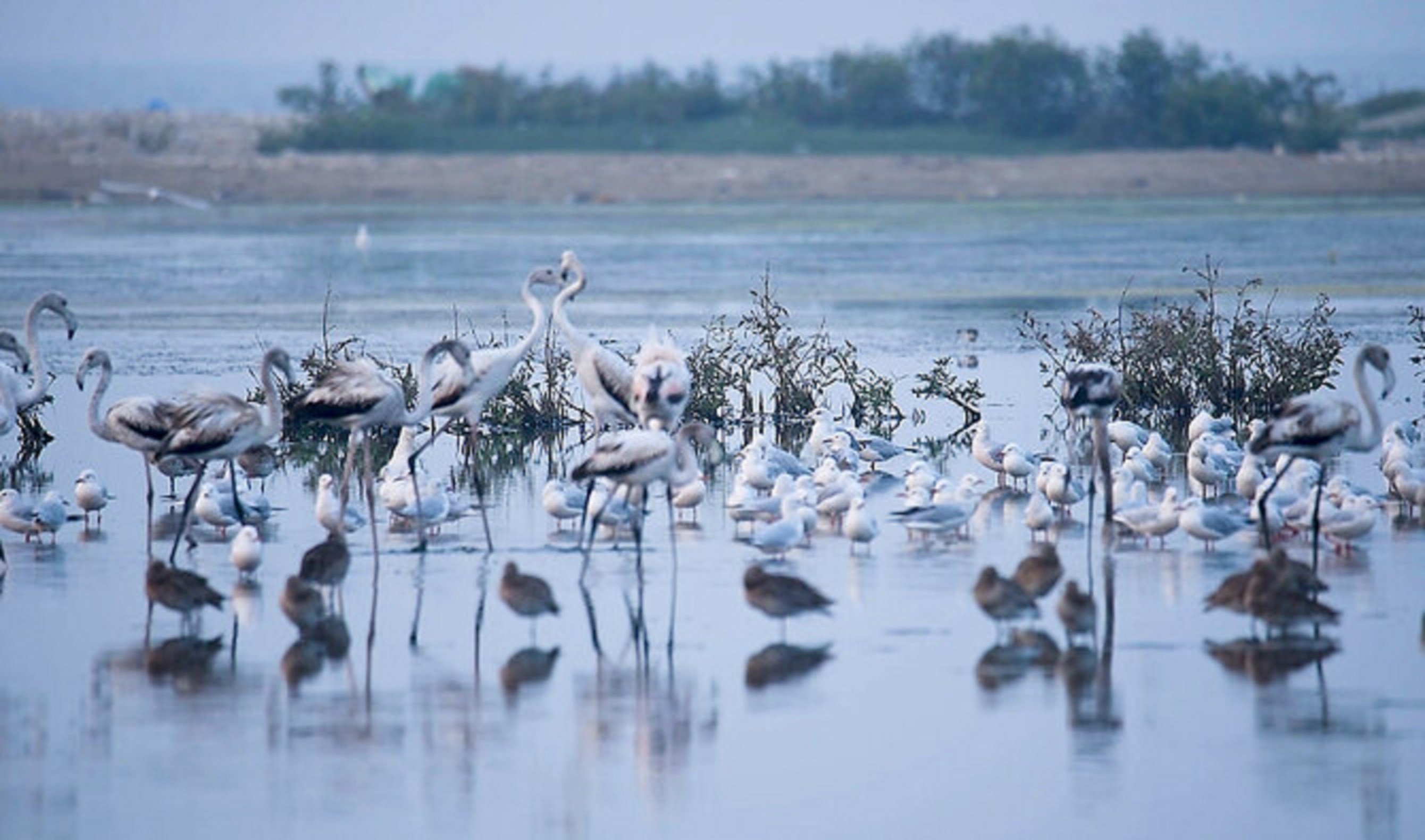
Over three years ago, environmentalist Masood Lohar embarked on a mission to transform a 220-acre landfill on Karachi’s Clifton beach into a thriving urban forest.
Today, the Clifton Urban Forest project is home to over 700,000 trees and more than 140 bird species that find sanctuary in its lush foliage and an adjacent lagoon.
“This particular place was a dump site,” said Lohar, 57, standing amid the green trees he began planting nearly four years ago. “We cleaned the whole mess and then started bringing soil from outside and began this plantation.”
The area now supports over 100 plant species, including native mangroves, pomegranates, and hardy grasses suited to Karachi’s challenging climate.
Lohar’s ultimate goal goes beyond beautifying the city; he aims to restore Karachi’s marine ecosystem and counterbalance its rapid urbanisation.
The city, with a population of over 20 million, faces worsening pollution levels and shrinking green spaces due to expanding infrastructure. Lohar believes projects like his urban forest can help Karachi become more resilient to natural disasters and offer a habitat for wildlife.
In 2021, Pakistan’s forest cover was estimated at a low 4.8%, trailing far behind neighbouring countries like India and Bangladesh.
Lohar sees afforestation as essential in tackling these environmental challenges, citing Karachi’s vanished water bodies and degraded ecosystems. Historically, Karachi hosted a network of rivers, creeks, and lagoons, many of which have been lost to industrial growth and unchecked sprawl.
Through his initiative, Lohar has revived a small part of the once-prominent Obhayo Lagoon. Since restoration efforts began, he has documented 140 bird species returning to the area, including flamingos and Siberian ducks, along with bees and beetles that support the forest’s ecosystem.
Lohar, who previously worked for the UN Development Programme, has witnessed deteriorating air quality and environmental degradation in Pakistan’s urban centres. “Pakistani cities are fighting for their breath because the air quality is getting worse and worse,” he said.
The forest’s trees also help mitigate the effects of Karachi’s heatwaves, which have worsened in recent years. In 2015, temperatures soared, leading to hundreds of heat-related deaths. With the sea breeze growing warmer due to the city’s concrete infrastructure, urban forests provide vital shade and help cool surrounding areas.
Mangroves in the Clifton forest play an additional role, sequestering carbon and reducing emissions. Lohar estimates that his project captures about 6,000 metric tons of CO2 annually, equivalent to emissions from nearly 1,300 cars.
Despite its success, Lohar’s project faces challenges, especially from real estate development. Rapid urbanisation has intensified pressure on Karachi’s open spaces, and a construction project by the Karachi Development Authority (KDA) threatens up to 300,000 mangroves in the forest.
“I’m not sure how that will unfold... but I’m sure it will definitely stress this project,” Lohar said, pointing to a marine wall under construction.
KDA Director General Altaf Gohar Memon and local government minister Saeed Ghani did not respond to requests for comment.
Environmental experts like Yasir Husain, founder of the Climate Action Center, applaud efforts like Lohar’s, though they recognise their limits in addressing Karachi’s broader environmental crises.
“These are tiny projects,” Husain told Arab News. “But they’re experiments... and finding a bird sanctuary in such a stressed environment is gratifying.”
The Clifton Urban Forest stands as both a beacon of environmental progress and a reminder of the pressures faced by Pakistan’s urban green spaces amidst development and climate challenges.





1731842248-0/Untitled-design-(21)1731842248-0-270x192.webp)











COMMENTS
Comments are moderated and generally will be posted if they are on-topic and not abusive.
For more information, please see our Comments FAQ